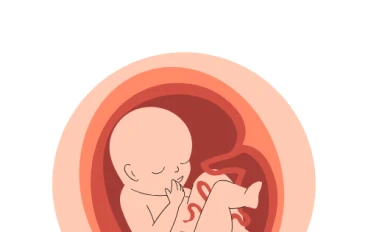
Reproductive Health and Childbirth: The Foundation of Life and Healthy Communities
Reproductive Health and Childbirth: The Foundation of Life and Healthy Communities
Introduction
Reproductive health and childbirth are critical components of individual well-being and societal development. They go far beyond the biological aspects of pregnancy and delivery, encompassing physical, psychological, and social dimensions of reproductive well-being. According to the World Health Organization, reproductive health is defined as “a state of complete physical, mental, and social well-being in all matters relating to the reproductive system at all stages of life.”
This article explores the concept of reproductive health, its importance, the key aspects of maternal care, and the main challenges that affect maternal and newborn health, along with potential solutions.
1. Understanding Reproductive Health
Reproductive health covers a broad range of issues, including:
The ability to reproduce and make informed choices about family planning.
Access to comprehensive healthcare before, during, and after pregnancy.
Prevention and treatment of sexually transmitted infections (STIs).
Access to accurate sexual education and health literacy.
It’s important to note that reproductive health concerns both women and men. The health of both partners plays a crucial role in successful reproductive outcomes and in building strong, healthy families.
2. Maternal Care and Childbirth
Pregnancy is a delicate period that requires consistent medical care to ensure the safety of both mother and baby. Maternal care is typically divided into three stages:
A. Preconception Care
This includes:
Full medical checkups.
Management of chronic diseases (such as diabetes and hypertension).
Intake of folic acid to prevent birth defects.
Education on proper nutrition and healthy lifestyle habits.
B. Antenatal Care
Antenatal care involves:
Regular doctor visits.
Blood tests and ultrasound imaging.
Monitoring blood pressure and blood sugar levels.
Birth education and preparation for labor, whether natural or cesarean.
C. Postnatal Care
This stage is vital for both the mother’s and infant’s health:
Monitoring the mother's recovery from childbirth.
Support for mental health and prevention of postpartum depression.
Promoting exclusive breastfeeding and baby care.
Family planning and access to safe contraceptives.
3. Nutrition and Mental Health During Pregnancy
Nutrition
Proper nutrition plays a central role in the well-being of both the pregnant woman and her unborn child. A balanced pregnancy diet should include:
Adequate protein, iron, and calcium.
Essential vitamins, especially Vitamin D and folic acid.
Sufficient water intake.
Poor nutrition can lead to complications such as anemia, low birth weight, or preterm birth.
Mental Health
A stable emotional state during pregnancy promotes healthier outcomes for both mother and baby. Emotional support from family and partners, as well as access to psychological counseling when needed, can reduce the risk of perinatal mood disorders.
4. Challenges Facing Reproductive Health and Childbirth
Despite significant advancements in healthcare, several challenges still affect reproductive and maternal health:
Lack of awareness and sexual education in certain communities, leading to misconceptions and unsafe practices.
Limited access to healthcare services in rural or underserved areas.
Poverty and malnutrition, directly impacting maternal and infant health.
Gender-based discrimination and violence, exposing women to physical and emotional harm.
Early marriage and teenage pregnancy, which increase the risk of birth complications and maternal mortality.
5. The Role of Awareness and Society
Community awareness and education are key tools in overcoming health challenges. This includes:
Integrating health education into school curricula to reach young people early.
Media campaigns that promote responsible reproductive behaviors.
Training healthcare providers to offer respectful and holistic care.
Empowering women to make informed choices about their health and family planning.
Involving men in reproductive health education is also crucial to creating a shared responsibility within families.
6. Innovation in Maternal and Newborn Care
The medical field has seen remarkable innovations in reproductive care, including:
Mobile medical teams providing safe home deliveries in remote regions.
Telemedicine consultations for pregnant women in isolated areas.
Mobile apps and digital tools to track pregnancy progress and reminders for checkups.
Improved emergency protocols for managing complicated deliveries.
These innovations contribute to lower maternal and neonatal mortality rates and promote healthier pregnancies and births.
Conclusion
Reproductive health and childbirth are not just personal concerns but collective responsibilities that impact society as a whole. Ensuring that every woman has access to quality, respectful healthcare throughout her reproductive journey can lead to healthier generations and more stable communities.
Investing in reproductive health is not a luxury—it is a human right. We must all work together—individuals, governments, and organizations—to guarantee safe motherhood, healthy infants, and empowered families.

































